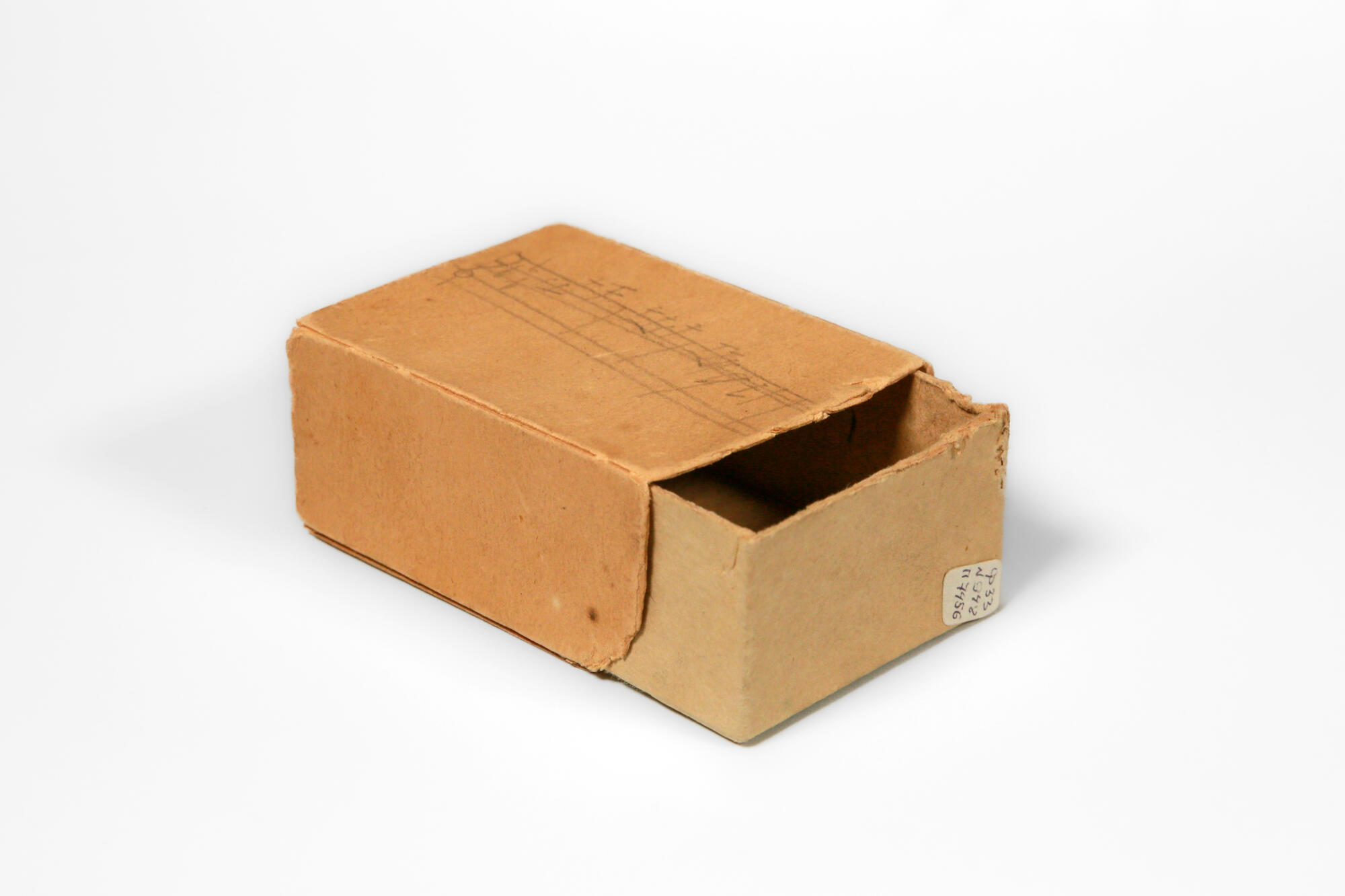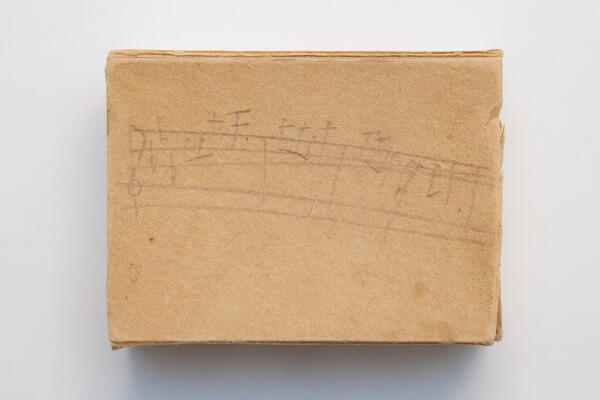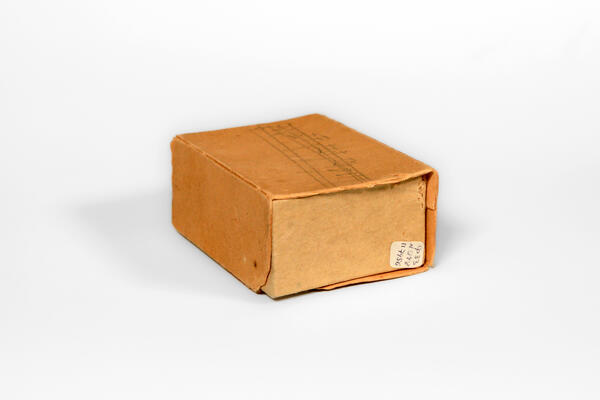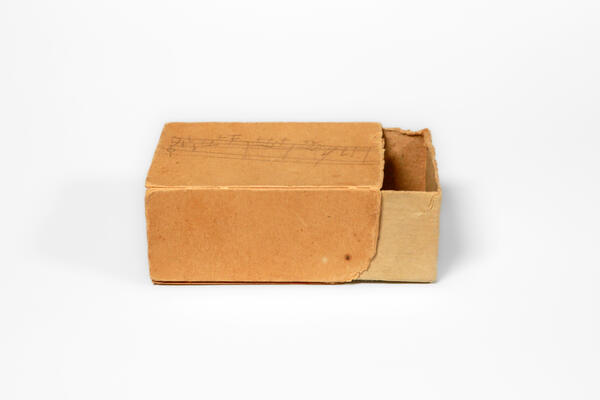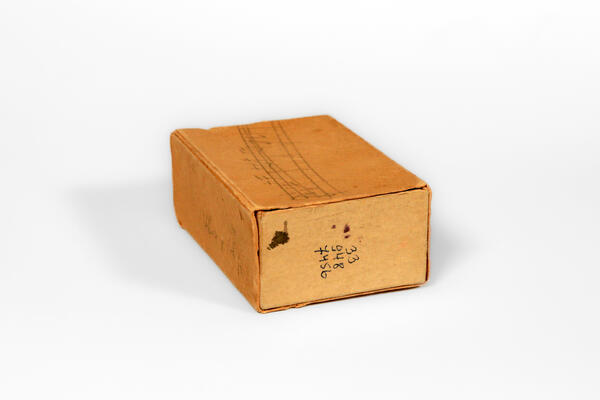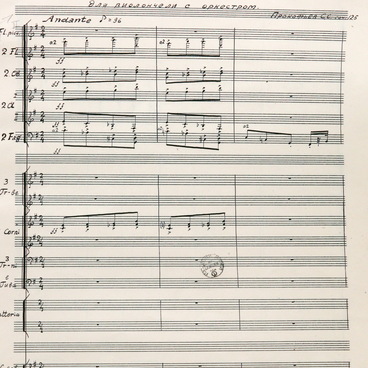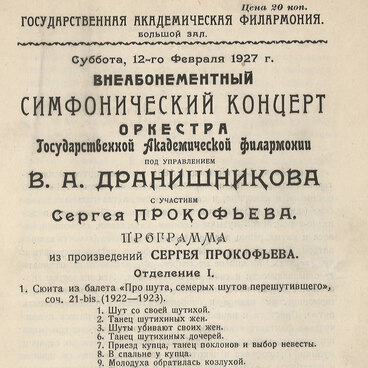Sergei Prokofiev was a very industrious person. Usually, he worked even on New Year’s Eve, on January 1, on his birthday, and when he was ill. His head was always full of musical ideas which he wanted to put down even when he had no music paper at hand.
Once, the composer wrote down a melody on a medicine box. When Prokofiev was ill, the doctors forbade him to work. However, he ignored their recommendations.
In 1919, when Prokofiev was creating his opera “Love for Three Oranges”, he fell seriously ill with scarlet fever and diphtheria. He started composing again as soon as his condition slightly improved. He was working on the opera on his hospital bed, hiding the sketches from the doctors. By doing so, the composer was able to finish his opera just in time. He wrote in his diary, “The illness has had a refreshing effect on me, if I can put it that way, and by June, I had finished the entire composition.”
In 1946, Prokofiev was seriously ill. He lay in the Kremlin Hospital and continued composing furtively. While one of his friends was keeping watch at the door of his ward, the composer took a music manuscript from under his pillow and scribbled down his new music. He complained, “How come the doctors do not understand that it is much better for me to write down a melody than to keep it in my memory?”
Prokofiev’s attitude to medication changed throughout his life. For some time, the composer was fascinated with Christian Science, a religious movement founded by the American writer Mary Baker Eddy in 1879. The advocates of this movement denied the existence of illnesses, advised to avoid taking medications, and instead to rely on prayers and self-suggestion.
Once, the composer wrote down a melody on a medicine box. When Prokofiev was ill, the doctors forbade him to work. However, he ignored their recommendations.
In 1919, when Prokofiev was creating his opera “Love for Three Oranges”, he fell seriously ill with scarlet fever and diphtheria. He started composing again as soon as his condition slightly improved. He was working on the opera on his hospital bed, hiding the sketches from the doctors. By doing so, the composer was able to finish his opera just in time. He wrote in his diary, “The illness has had a refreshing effect on me, if I can put it that way, and by June, I had finished the entire composition.”
In 1946, Prokofiev was seriously ill. He lay in the Kremlin Hospital and continued composing furtively. While one of his friends was keeping watch at the door of his ward, the composer took a music manuscript from under his pillow and scribbled down his new music. He complained, “How come the doctors do not understand that it is much better for me to write down a melody than to keep it in my memory?”
Prokofiev’s attitude to medication changed throughout his life. For some time, the composer was fascinated with Christian Science, a religious movement founded by the American writer Mary Baker Eddy in 1879. The advocates of this movement denied the existence of illnesses, advised to avoid taking medications, and instead to rely on prayers and self-suggestion.
